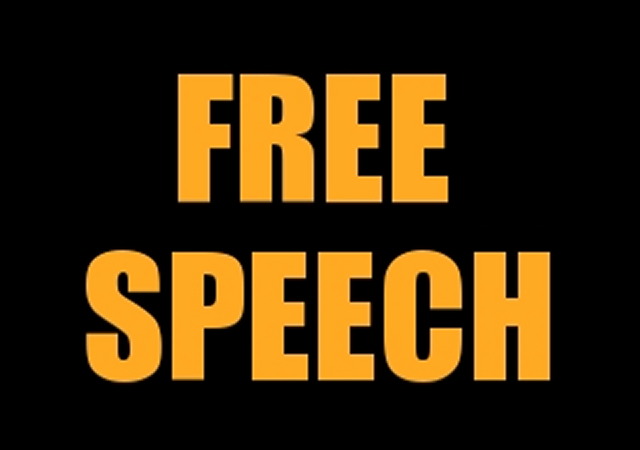Free Speech Advocacy Group Files Lawsuit Against Indiana University
“designed solely to deter, discourage, and otherwise ‘prevent’ students from expressing disfavored views about the political and social issues of the day”

The complaint centers around a school policy on “bias incidents.” What an Orwellian term.
Campus Reform reports:
Speech First sues Indiana University for policy that suppresses free speech
A free speech advocacy organization, Speech First Inc., has filed a lawsuit against Indiana University over its alleged stifling of open discussion on campus.
The lawsuit, filed on May 29, targets IU President Pamela Whitten, the Board of Trustees, and several university officials.
Speech First argues that IU’s bias incidents policy is “designed solely to deter, discourage, and otherwise ‘prevent’ students from expressing disfavored views about the political and social issues of the day.”
IU defines a “bias incident” as “any conduct, speech, or expression, motivated in whole or in part by bias or prejudice meant to intimidate, demean, mock, degrade, marginalize, or threaten individuals or groups based on that individual or group’s actual or perceived identities.”
Speech First contends that IU’s bias incidents policy is too harsh and vaguely defined: “Students accused of ‘bias incidents’ can be referred for formal disciplinary proceedings. This policy poses a grave risk of chilling the open and unfettered discourse that should be central to higher education. Its bureaucratic processes—and the vague, overbroad, and viewpoint-based definition of ‘bias incident’ that triggers them—violate the First and Fourteenth Amendments.”
To illustrate what is perceived as the chilling effect of IU’s policy, the lawsuit mentions the cases of several anonymous students who feel they cannot fully express themselves.
For example, “Student A does not fully express himself or talk about certain issues because he knows that students, faculty, or others will likely report him to University officials for committing a ‘bias’ incident. Because the definition of ‘bias’ is so broad and vague, Student A is confident that someone will find his speech to be ‘biased.’”
Donations tax deductible
to the full extent allowed by law.








Comments
All speech is biased to some extent. My point of view is not yours and theirs is not ours. Disagreements should not lead to censorship but but more speech and debate. Only people who cannot accept that other people have different opinions get angry and want to shut people up. It doesn’t matter what side they might be on or what opinion they may have, no matter how badly they express that opinion, they deserve to try to state their opinion and support it according to their own light. What part of “Love they neighbor” is hard to understand?
You sound like Jonathan Turley. That’s a compliment.